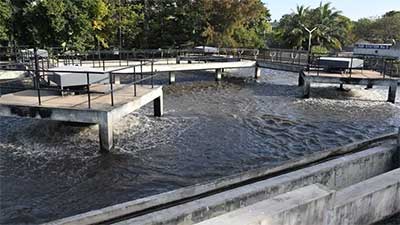Date: 22/04/2023
Relevance: GS-3: different types of irrigation and irrigation systems storage; Science and Technology- developments and their applications and effects in everyday life.
Key phrases: The Council on Energy, Environment and Water (CEEW), freshwater, The UN Waste Water Assessment Programme, Central Pollution Control Board, Treated Wastewater, infrastructure for water supplies and wastewater treatment
Context:
- Water quality and the availability of freshwater are serious concerns across the globe and threaten to disrupt life on the planet. India, too, has serious water woes, some of which were recently captured in an independent study by the Council on Energy, Environment and Water (CEEW).
- The Council on Energy, Environment and Water (CEEW) in its study Titled “Reuse of Treated Wastewater in India: Market Potential and Recommendations for Strengthening Governance”, has offered some pertinent solutions.
- The UN Waste Water Assessment Programme report states that high-income countries treat approximately 70% of the wastewater that is generated. The ratio drops to 38% in upper-middle-income countries, 28% in lower-middle-income countries and 8% in low-income countries. This adds up to around 20% of the wastewater being treated globally.
Highlights of the CEEW Report:
- Using the Central Pollution Control Board’s 2021 data, the report reflected on the fact that India treats only 28 per cent of the total sewage it generates per day from its urban areas.
- Of the 72,368 million litres per day (mld) of sewage produced in these areas, only 20,236 mld is actually treated. Tier-1 and -2 cities, which make up 72 per cent of the urban population, produce an estimated 38,254 mld of sewage, of which only 30 per cent is actually treated.
- The report assessed that India will produce over 35,000 million cubic meters of wastewater by 2050, and currently, only 10 States have treated wastewater reuse policies.
- The CEEW researchers analysed — using Central Water Commission estimates — that 11 of the 15 major river basins are likely to face water stress by 2025.
- They felt it was “essential to explore alternative sources of water to address the demand-supply gap.”
Wastewater Potential:
- The researchers figured that there was a “tremendous potential” to reuse wastewater.
- “Reusing treated wastewater for irrigation could have generated 28 million metric tonnes of fruit and vegetable produce and ₹96600 crore in revenue in 2021 alone.
- Using wastewater for irrigation in 2021 would have saved 1.3 million tonnes of greenhouse gas emissions and ₹5 crore in fertilizer use.”
- The “market value of treated wastewater in India will be ₹83 crores in 2025 and Rs ₹190 crore in 2050 if the mechanism to sell it to select sectors is developed.”
Benefits of wastewater reuse:
- Reduce Water Bills
- Use Fewer Water Resources
- Irrigate the garden during drought or water restrictions
- Cut down the amount of pollution going into waterways
- Help save money on new infrastructure for water supplies and wastewater treatment
- Decrease demand on infrastructure for sewage transport, treatment, and disposal, allowing it to work better and last longer
Way forward:
- Make a paradigm shift in policymaking: Wastewater needs to be recognised as an integral part of water resources and hence addressed in all water management-related policies.
- Frame water quality standards: Water quality standards for both safe discharge and reuse need to be well defined.
- Establish institutional mechanisms: Urban local bodies should be empowered to formulate and adopt long-term, city-level wastewater reuse plans, with roles and responsibilities clearly defined with active engagement of end-user groups.
- Invest in technological developments: Dedicated funds should be allocated for the research and development of wastewater treatment technologies, which can optimise resource efficiency. State Governments need to come out with a clear strategy for research and development in this sphere.
- Optimal use of financial resources: Targeted performance-based incentives should be provided for the operators/end-users of wastewater treatment plants and an effective pricing mechanism should be established, considering different categories of end-users and their paying abilities.
- Incorporating the public as a stakeholder: Responsible authorities should develop effective public outreach plans to build public confidence and develop responses for the successful implementation of wastewater reuse projects.
Source: The Hindu BL
Mains Question:
Q. As per the Central Pollution Control Board data, India treats only 28 per cent of the total sewage it generates per day from its urban areas. Suggest a way forward for the waste water reuse strategy. (200 Words).







